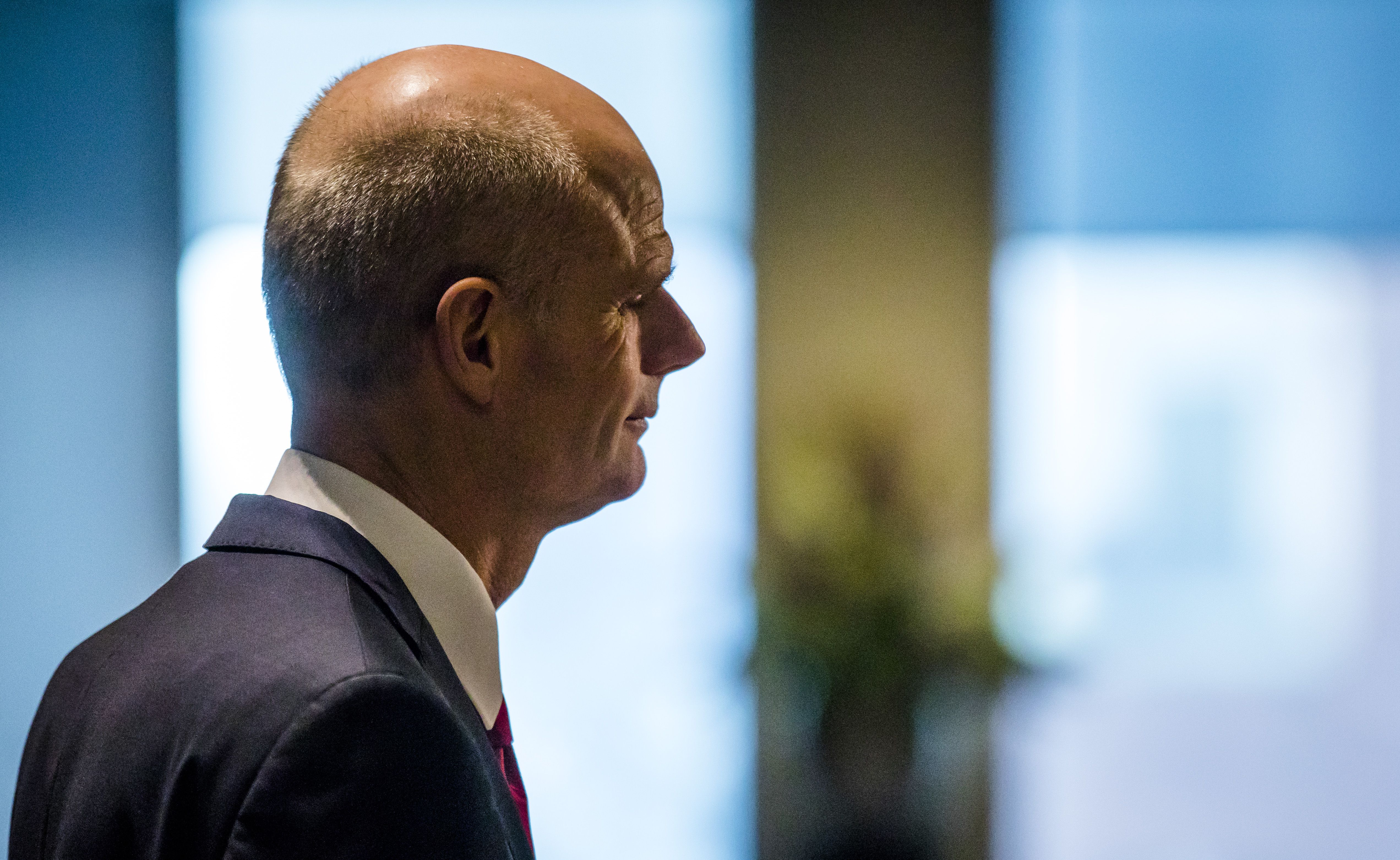EU hits Iran with sanctions after murder plots
Dutch Foreign Minister Stef Blok says the Dutch secret service has strong indications that Iran was involved in the assassinations of two Dutch nationals of Iranian origin’ in 2015 and 2017 (Bart Maat)
The Hague (AFP) – The EU hit Iran’s intelligence services with sanctions Tuesday after accusing Tehran of being behind plots to assassinate regime opponents on Dutch, Danish and French soil.
The move by the 28-nation bloc was announced as the Dutch government said it believed Iran was behind the murders of two dissidents in 2015 and 2017.
“Very encouraging that (the) EU has just agreed on new targeted sanctions against Iran in response to hostile activities and plots being planned and perpetrated in Europe, including Denmark,” Danish Prime Minister Lars Lokke Rasmussen said.
The “EU stands united — such actions are unacceptable and must have consequences,” he tweeted.
Sanctions include the freezing of funds and other financial assets of the Iranian intelligence ministry and individuals, officials said.
But Iran’s Foreign Minister Mohammad Javad Zarif pointed the finger at European nations he said were harbouring terrorists.
“Accusing Iran does not release Europe from its responsibility for hosting terrorists,” he said in a tweet.
– More sanctions not ruled out –
Denmark led efforts for sanctions after allegations that Tehran tried to kill three Iranian dissidents on Danish soil.
A manhunt related to the alleged plot against three Iranians suspected of belonging to the Arab Struggle Movement for the Liberation of Ahvaz (ASMLA) led to the shutdown of bridges to Sweden, as well as ferries, on September 28.
France last year imposed sanctions on two suspected Iranian agents and others from Iran’s intelligence and security ministry.
The French security services concluded that the head of operations at the Iranian intelligence ministry had ordered a plot to bomb a rally of the People’s Mujahedeen of Iran (MEK) opposition group in a suburb of Paris in June last year — which Tehran strongly denied.
“When the sanctions were announced, the Netherlands, together with the United Kingdom, France, Germany, Denmark and Belgium, met Iranian authorities,” Dutch Foreign Minister Stef Blok said.
The meeting conveyed “serious concerns regarding Iran’s probable involvement in these hostile acts on EU territory,” Blok said in a letter to parliament in The Hague, also signed by Interior Minister Kajsa Ollongren.
“Iran is expected to cooperate fully in removing the present concerns and, where necessary, aiding in criminal investigations,” the letter said.
“If such cooperation is not forthcoming, further sanctions cannot be ruled out,” it added.
– Nuclear deal –
The EU has previously trodden cautiously on Iran as it sought to save a beleaguered nuclear deal with Tehran after the US withdrew last year and imposed new sanctions.
US Secretary of State Mike Pompeo, who has made pressure on Iran a top priority, hailed the EU move as “a clear message that terrorism will not be tolerated.”
“The US strongly supports the new sanctions and stands with our European allies as we counter this common threat,” Pompeo tweeted.
But Dutch ministers said that at a meeting with Iranian officials “it was emphasised that the measures were not linked” to the Iran nuclear deal.
“Nevertheless, Iran will be held to account for all matters that affect EU and international security interests” including the 2015 and 2017 assassinations in the Netherlands, the letter said.
Dutch police have previously named the two victims as Ali Motamed, 56, who was killed in the central city of Almere in December 2015, and Ahmad Molla Nissi, 52, murdered in The Hague in November 2017.
Dutch news reports had said Motamed was living in the Netherlands under a false name and is really Mohammad Reza Kolahi Samadi — the man behind the largest bomb attack in Iran in 1981.
Nissi was shot dead in The Hague from a moving car, later found to have been stolen from a suburb outside Rotterdam.
Dutch police said Nissi was the chairman of the ASMLA, which advocates the independence of southwestern Iran’s Ahwaz area.
Last June, the Netherlands expelled two Iranian embassy workers in connection with the murders.
Tehran at the time protested the expulsion as an “unfriendly and destructive move” and threatened to retaliate.
Disclaimer: This story is published from a syndicated feed. Siliconeer does not assume any liability for the above story. Validity of the above story is for 7 Days from original date of publishing. Content copyright AFP.


